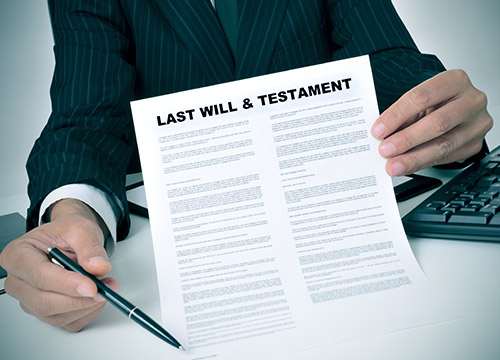How to Draft a Cost-Effective Will
By Andy Tiwari

Old or young (“younger the better” – ‘cause you never know when it’ll be needed) – one of the best ways to ensure your savings, collectibles, heirloom linens, your favorite firearm, that 1929 Ford Model A – or just your favorite ratty old books – is to have a valid will. It’s a wise investment of time and money because if you die without one – called dying intestate – you may leave a mess for your family to clean up.
Moreover, if you don’t leave a will when you pass on, a court will decide who gets your property – and the decisions likely won’t reflect your wishes or could force your loved ones to have to sell assets, such as real estate, at an inopportune time. But wills don’t have to be costly to be legally binding in Texas.
Here’s a little secret: you can draft a valid will for free! Instead of using some Internet form, which may be filled with traps and mistakes, your best bet is to write it yourself. Here’s how to draft your own will.
1.) Under Texas law, a person must write the will completely in his or her own handwriting, what’s called a “holographic” will. It must be all in your handwriting – nothing typed or printed. I suggest writing it out in blue ink, so it’s obvious it’s an original will. Don’t let anyone else scribble on it or interline anything. You need NO witnesses, so don’t let anyone sign it, especially not someone who is getting stuff from your estate through the will. When you’ve written it, tell someone you trust that there is a will and where it is!
2.) It should contain language to make it clear that you intend this document to be your last Will & Testament, but it should be short and sweet, such as,
“I, John C. Doe, make this my last Will & Testament. It revokes any other wills I’ve made before. I name my wife, Jane Z. Doe, as my executor; if she dies before me, I want Peter A. Doe to be executor. I don’t want my executor to have to provide any bond or to be supervised by any court except to the degree required by law. This will disposes of all the property or assets I own. I leave all my estate to my wife, Jane Z. Doe. If she dies before me, I leave it to all my children, shared equally. If there are any minors, the executor will be their trustee and guardian and will hold their shares in trust until they reach majority. Pay my bills and taxes, then distribute what’s left over.”
3.) Be sure whomever you name as the executor it is someone you trust to carry out the directions in your will exactly as you have written them. Your executor should be an adult living in Texas and preferably close to where you live (and presumably will die) and can’t be a felon.
4.) It is advisable you date the will so that it’s clear which will is current as you make revisions when and as conditions and events in your life change.
5.) Remember to sign the document: first name and last name. There is no need for a witness or to have it notarized.
6.) Put the will in an envelope, write “WILL” on the outside, file it somewhere safe, and then notify your family or named executor that it exists and where it can be found after your death.
If any of the above steps are not doable, professionally drafted wills are available for less than $1,000 per person through attorneys specializing in estate planning and wills and trusts. More complex wills that involve multiple beneficiaries, lots of bequests, trusts or guardianships and arrangements can be more expensive and usually are based on the time and study required to draft the document.
In drafting your will, an attorney should ask for a considerable amount of personal information regarding your family, possessions and wishes. It is confidential and will be so maintained. Don’t hesitate to disclose everything. Once this is done, you should be provided a draft to review before you get the final copy. When the will is final and meets your desires, it will be signed before two witnesses and a notary. A properly executed will be “self-proving,” meaning there shouldn’t be a need for witnesses to be called to the probate hearing to testify as to the genuineness of the will or your signature.
Regardless of which method you pick, a will is essential for you and your family. Please do one!
If you need legal advice, schedule a meeting with Tiwari + Bell PLLC through our website or by calling (210) 417-4167.
